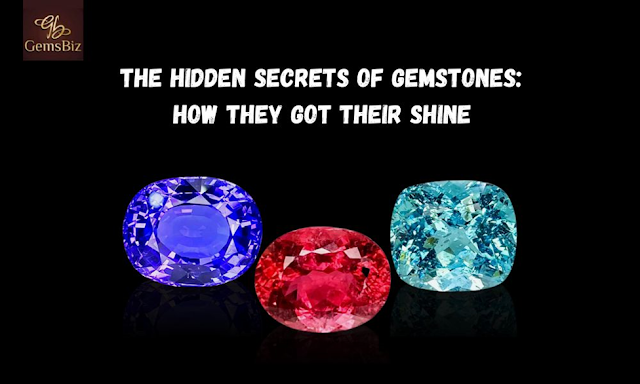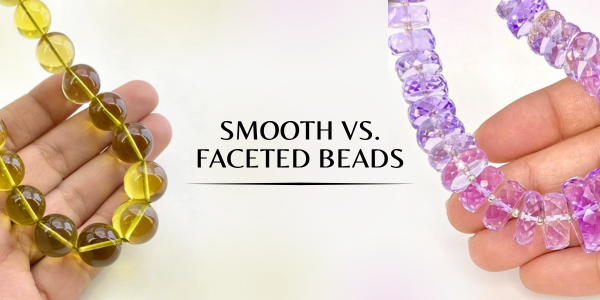The Hidden Secrets of Gemstones: How They Got Their Shine
People have long been fascinated by the beauty of gemstones, especially diamonds and other precious gems. Loose gemstones have long been used in jewelry and other decorative items and are considered valuable parts of many people’s collections, which is why they usually cost quite a bit of money. But how did they get to be so sparkly? What makes these gems so beautiful? The answers are actually quite simple—they all come down to a science, in some way or another! Here’s what you need to know about the secret ingredients that make these beautiful gemstones so shiny.
Introduction
of gemstones
The word gem is derived from the Ancient Greek word, jema
meaning jewel. These wholesale precious gemstones
have been cherished for centuries and are the most valuable materials on earth.
Gemstones have always been a symbol of wealth and beauty, but what is it about this
shiny rock that makes them so special? It turns out there’s a lot more to
gemstones than just sparkles; here are four things you may not know about our
favorite gems.
1)
What does an opal look like? When light hits an
opal, its color changes depending on the angle of observation. As a result, no
two opals are ever alike.
2)
How do diamonds form? Diamonds form when carbon
in Earth's crust becomes buried under high pressures and temperatures deep
below ground in the diamond-producing regions near South Africa and Russia.
3)
Why are natural emerald stones green? Emeralds owe their name to their beautiful green hue
which comes from small amounts of chromium.
4)
What is the oldest stone used in jewelry? Lapis
lazuli has been mined since at least 6,000 B.C., making it one of the oldest
stones used in jewelry today.
What is a
gemstone?
A gemstone is a piece of mineral that has been cut and
polished to create the desired shape. Gemstones
have been used in jewelry and other decorative arts since ancient times. They
are prized for their beauty and rarity, as well as their durability, variety of
colors, and ability to be fashioned into different shapes (for example, they
can be cut with facets). They also may have a symbolic value. Ancient cultures
believed that certain gemstones could provide protection against illness or
disease; while others were considered bad luck or brought bad luck upon those
who wore them.
How
Diamonds Got Their Shine
Diamonds are so stunning because they're the purest form
of carbon. The best diamond in the world is as much as 98% pure carbon, with
just trace amounts of other elements. When a diamond is cut, it reflects light
at certain angles and sends out bright flashes that are called sparkles. It's
not only how diamonds got their name but how they got their shine too!
How Sapphires Got Their Shine
Sapphires are one
of the most popular gemstones for rings, necklaces, earrings, and other jewelry
because they are a beautiful blue color with a subtle hint of purple. Sapphires
are also an affordable gemstone to buy because they're affordable. But did you
know how sapphires got their signature color? The answer is surprisingly simple
- sapphires owe their color to the presence in them of the mineral corundum!
How Rubies
Got Their Shine
Ruby is the birthstone for people born in July and is known
for being a fiery red color. While ruby’s natural color seems simple enough, it
actually contains a lot of complexity when you look closely at the gemstone.
Rubies are made up of three different minerals, corundum, aluminum
oxide, and chromium. The corundum gives the gemstone its dark red color, while
aluminum oxide and chromium give it an intense shine that can be seen from
across the room.
How
Emeralds Got Their Shine
Emeralds got their shine from the beryllium in them, as well
as iron, chromium, and nickel. Beryl is a mineral composed mostly of beryllium
aluminum silicate. Emeralds are made up of these minerals and others, like
chromium and nickel. As the gemstone oxidizes or rusts, it changes colors to a
dull green or brown. This oxidation process happens when one or more substances
react with the surface to change their color.
Conclusion
In conclusion, there is a lot more to these stones than
meets the eye. From the depths of the earth, they rose and became what you see
today, shining with all their glory. Now it's time for you to go out and find
your own stone that will make you feel like royalty. If you are looking to buy gemstones online then check out our
finest collection of gemstones, cabochons, and beads for jewelry making at
GemsBiz.




Comments
Post a Comment